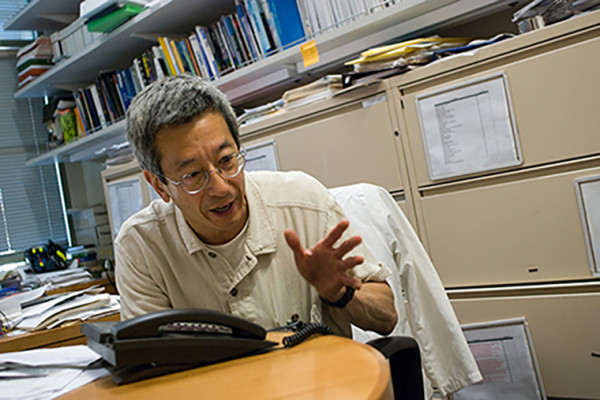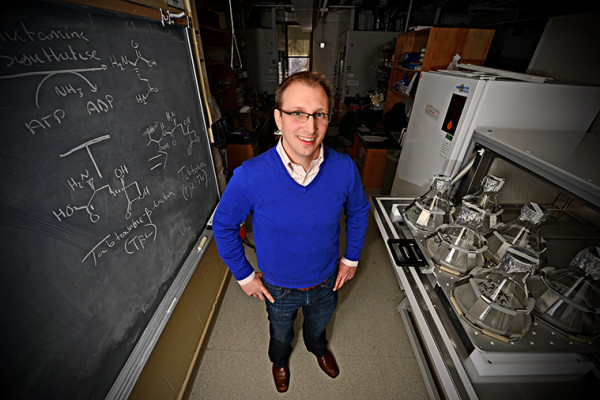Imbalanced hearing is more than a mild disability
Asymmetric hearing is a difference between the two ears’ ability to detect and process sound. New studies indicate that people with asymmetric hearing experience greater communication difficulties than previously assumed. Researchers led by Jill B. Firszt, PhD, have received a $3 million grant from the National Institutes of Health (NIH) to study the effects of asymmetric hearing loss in adults and children.
Global conference focus: maternal and child health, infections in animals that threaten humans
On March 28, renowned researchers from around the globe will gather in St. Louis to discuss maternal and child health and infections in animals that threaten humans. These topics will be highlighted at the second annual conference of the Washington University Center for Global Health and Infectious Disease.
Research aims to improve repair of rotator cuff injuries
With a five-year, $3.1 million grant from the National Institutes of Health, Washington University orthopedic researchers and engineers are working to enhance rotator cuff repair surgery.
New cyclotron to help doctors detect cancers
A new cyclotron recently was installed at the East Building on the School of Medicine campus. The unit, in the works for more than a decade, is a particle accelerator that will produce radioactive compounds, many of which are used with positron emission tomography (PET) scanners to detect specific types of cancers.
Free birth control doesn’t promote risky sexual behavior in women
Researchers at the School of Medicine have shown that providing women with free contraception does not increase the likelihood that they will have sex with multiple partners, as critics of the practice have suggested. Shown is the study’s first author, Gina Secura, PhD.
See the future of the campus – March 10 and 11
The Washington University Medical Center is undergoing the initial phases of a transformation that primarily will feature expansions of St. Louis Children’s Hospital, Barnes-Jewish Hospital and Siteman Cancer Center. It also will include more space for Washington University Physicians clinics and diagnostics and new facilities for women and infants, oncology and surgical services. If you’re curious about the expansion, renderings will be on display and staff will be on hand to answer questions March 10 and 11 at two campus locations.
Biomarkers of cell death in Alzheimer’s reverse course after symptom onset
Three promising biomarkers being studied to detect Alzheimer’s disease in its early stages appear to undergo a surprising shift as patients develop symptoms of dementia, researchers led by Anne Fagan, PhD, at the School of Medicine report.
2014 Leopold Marcus lecture by Nobel laureate
Roger Tsien, one of three chemists who won the Nobel Prize in Chemistry
in 2008 for the discovery and development of green fluorescent protein, will give the Leopold Marcus lecture at Washington University in
St. Louis. His talk, “Fluorescent Molecules for Fun and Profit,” is intended for a general audience and will take place at 4 p.m. Wednesday, March 12, in the Laboratory Sciences Building, Room 300. The talk is free and open to the public.
Drake honored with coordinator excellence award
Tia Drake, executive director of Graduate Medical Education (GME) at the School of Medicine, has been honored with the GME Institutional Coordinator Excellence Award.
New drugs for bad bugs
Washington University in St Louis chemist Timothy Wencewicz says we’ll stay ahead of antibiotic resistance only if we find drugs with new scaffolds, or core chemical structures. One promising candidate, an antibiotic made by a bacterium than infects plants, caught his attention because it contains an “enchanted ring,” the beta-lactam ring that is found in penicillin. In this drug candidate, however, it acts against a different target than the penicillins.
Older Stories


